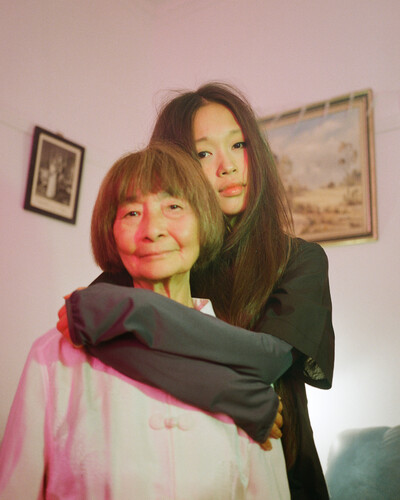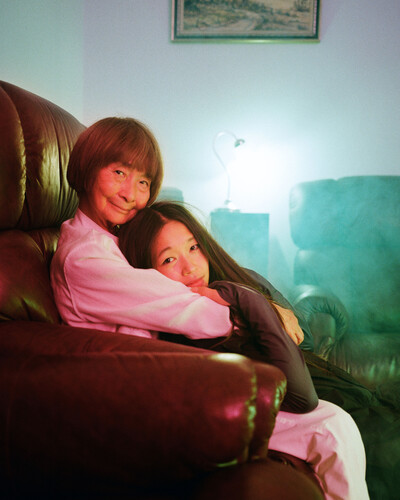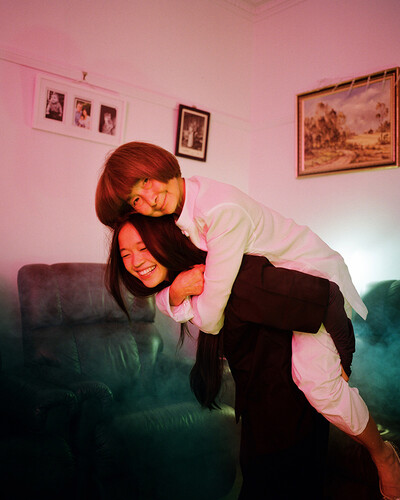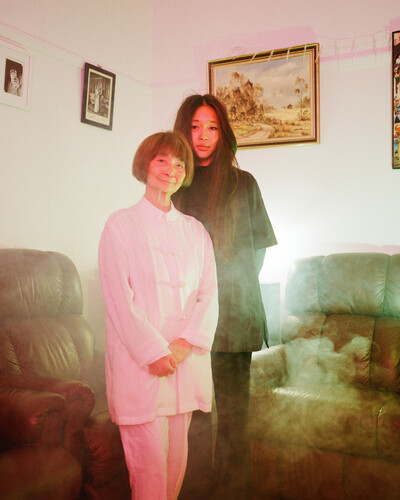Notion Magazine
Type
Featured Artist
Year
2021
Notion Magazine 89 — Spring Issue
Filial Piety
Photographer and filmmaker James J. Robinson captures the essence and character of his subjects - whether that's his friends or well-known faces - in a way that feels both real and otherworldly, transcendent but never unattainable. Inspired by literature, cinema, lighting design and the creatives around him, his approach explores identity as much as it amplifies everyday beauty, suspending transient moments in an immersive, cinematic world we're all invited to escape to. In this series, James photographs a collection of Melbourne artists alongside their families, delving into the symbiotic relationship between their support networks and their work.
— Notion Magazine

Photography, Words & Interview by James J. Robinson
In 2012, when I was in one of my high school maths classes, I remember asking one of my closest friends who I’d always sit next to why he didn’t want to study any creative subjects. I’d see him drawing characters on the margins of his homework sheets, rendering them with skills light-years ahead of mine, and wondered what would stop someone with such natural dexterity from engaging in a world they so obviously belonged to.
“Mum didn’t sacrifice her whole life and family in China so I could be an artist.”
Huh. Fair enough. He had articulated something I had felt but had been making an effort to repress, a deep feeling of first-generation guilt over my own mother’s journey from the Philippines to Australia. Was being an artist a waste of her sacrifice? It’s a question that I, and many friends around me from all over the world, had struggled to confront.
Of course, almost a decade later I know that not to be the case. I look around at my creative peers and see so many faces and stories just like mine. And like me, they weren’t pursuing this career in spite of the guilt, in spite of this sacrifice, they were doing it with the total support and encouragement of their families. Freeing myself from the stereotype became a healing process, a reminder that being creative and expressing an alternative viewpoint was a radical act.
Reflecting on my Filipino heritage and the encouragement I had from my parents, I was interested in Asian families cultivating creativity in their children. The stereotype of Asians who pursue ‘STEM’ and business disciplines for their parents is linked with first generation immigrant guilt, which guilts you into a prosperous and ‘safe’ career worth your parents’s transmigrational sacrifice. But it’s time to let go of this stereotype; to let those academics study by their own volition, and show that Asian families still support creativity.
Rather than shooting these artists alone, I wanted to capture the whole picture behind who they are: their parents, their cousins, their family friends, their brothers and sisters; the people who raised them and validated their creative dreams. This series is a dedication not only to my friends who are all radicalising their respective creative fields, but to their families or support networks that have made it happen.

J: Have your parents and family members always been supportive of your creative pursuits?
A: My parents have always been supportive of my pursuits, regardless of the avenue. Although they’ve often danced around the topic of being an artist with trepidation. They worry I’ll have a lonesome journey, and it pains them because being an artist inevitably requires consolation in solitude for me. Sometimes I absorb their uncertainty and it becomes mine, which can be paralysing when I also lose faith in myself. I imagine every industry has its share of bitterness though.
J: Do you think they will ever understand the art world? Does it matter if they don’t?
A: I think they understand as much as they need to; I’m not sure I understand half the time. I’ve been trying to reflect on my place in ‘the art world’ as of late. Being a part of the community can incentivise growth in many ways, but I can also get lost and lose myself. My parents understand me, they know my intentions, and they demonstrate unwavering integrity. This is the most precious gift I know.

J: Is expressing yourself creatively something that’s fundamental to your nature?
A: I think so, I’m don't naturally gravitate towards linear modes of learning or functioning. I’m primarily intuitive and mostly feeling. I like intensive periods of submersion, then ample time off to recharge. In some ways, this integrates naturally with the ebbs and flows of creative endeavours. I’m working on the shortcomings of these tendencies, because it can be emotionally unsustainable without discipline, routine and structure.
J: Is there a particular family member who has influenced you both as a person and as an artist? What are some of their qualities that you admire?
A: Both my parents are lionhearted warriors, and I am completely enamoured with my mum. I aspire to be a fraction of the person she is one day. Despite her foolish facade, she is cuttingly wise, deeply loyal, imperishable, and completely unassuming. She gets grumpy, but always takes accountability. We butt heads a lot. We hug it out a lot. My eyes are soggy thinking about her now. My parents are in Taiwan making up for lost time with loved ones… otherwise I would be holding them here as well.

Filial Piety: A virtue central to many cultural and philosophical traditions, particularly in Confucianism, emphasizing respect, devotion, and care for one's parents and elders. It reflects a commitment to family loyalty, honoring ancestors, and upholding familial harmony as a moral foundation.
Photographed with my mother's best friend, and a dear family friend, Petra